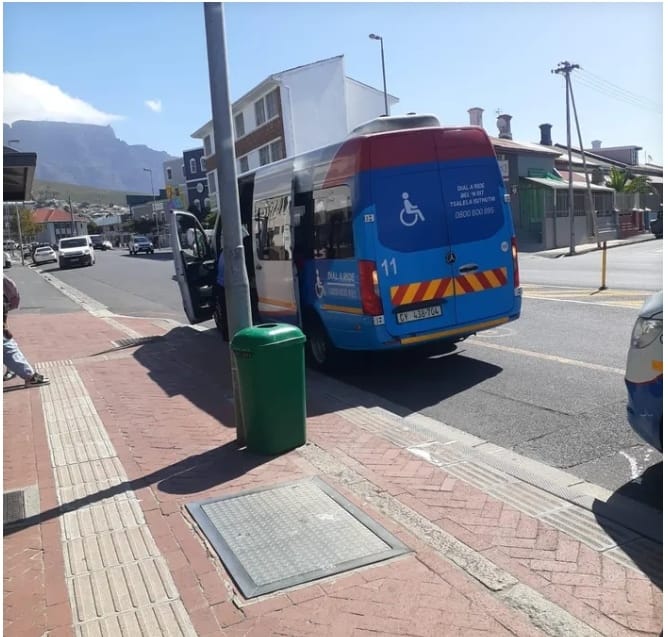
Dial-a-Ride blind commuters face service cuts in Cape Town, prompting human rights complaints and calls for fully accessible transport. Image: Supplied
(ThePostNews) – Dial-a-Ride blind commuters face service restrictions as the South African Human Rights Commission (SAHRC) investigates two complaints. The announcement that Dial-a-Ride blind commuters will now serve only certain wheelchair users has raised serious concerns about accessibility for blind and visually impaired passengers.
Cape Town’s blind workers must arrange alternative transport by September 8. Dial-a-Ride cited overwhelming demand and a multi-million-rand funding shortfall that has disrupted its accessible public transport operations.
Starting September 8, Dial-a-Ride will limit weekday peak-hour trips to qualifying wheelchair users and people with serious mobility challenges. Meanwhile, weekend and public holiday travel will be restricted to work-related trips only. All trips will focus on commuting between home and work. As a result, leisure and personal travel will no longer be available for disabled commuters.
Disability Groups Raise Concerns
The Western Cape Network on Disability urges the City of Cape Town to remove the new limits. They also want meetings with key stakeholders and a commitment to a fully wheelchair-accessible public transport system that respects constitutional rights and supports blind and visually impaired residents.
Michelle Botha, head of the network, called the suspension of services for Dial-a-Ride blind commuters a human rights violation. She added that it increases vulnerability and limits access to schooling, medical visits, community programs, sports, and other essential activities.
Botha explained that Dial-a-Ride will now serve only select wheelchair users. Blind and visually impaired commuters will lose access completely. Furthermore, she argued that this change goes beyond budget concerns, denying disabled people their constitutional rights to equality, dignity, and full participation in society.
She highlighted that MyCiTi buses do not reach all neighborhoods, lack full accessibility, and often face technical problems. Golden Arrow buses remain largely unusable for disabled passengers. Specialized ride-hailing services are expensive and may refuse passengers with assistance dogs. In addition, NGO transport services are already strained.
Amanda Matthee, a visually impaired resident who works in Bellville, said she would face safety risks if the service ends. She criticized the city’s decision as failing to support blind commuters and violating her rights.
City Responds to Funding and Capacity Issues
Rob Quintas, Urban Mobility’s mayco member, expressed regret over the impact on passengers. He explained that budget constraints left the city with no viable alternative. Quintas said the service reduction followed months of unsuccessful attempts to secure additional funding from national transport and social development departments.
After reviewing operating costs, Urban Mobility concluded that reductions were necessary due to financial limits and capacity constraints affecting vehicles, drivers, and coverage. Therefore, the city is urging organizations to seek national government funding to maintain accessible transport services for disabled people.
Please share your thoughts and contact Thembeka via email: journalist-thembeka@thepostnews.net.



